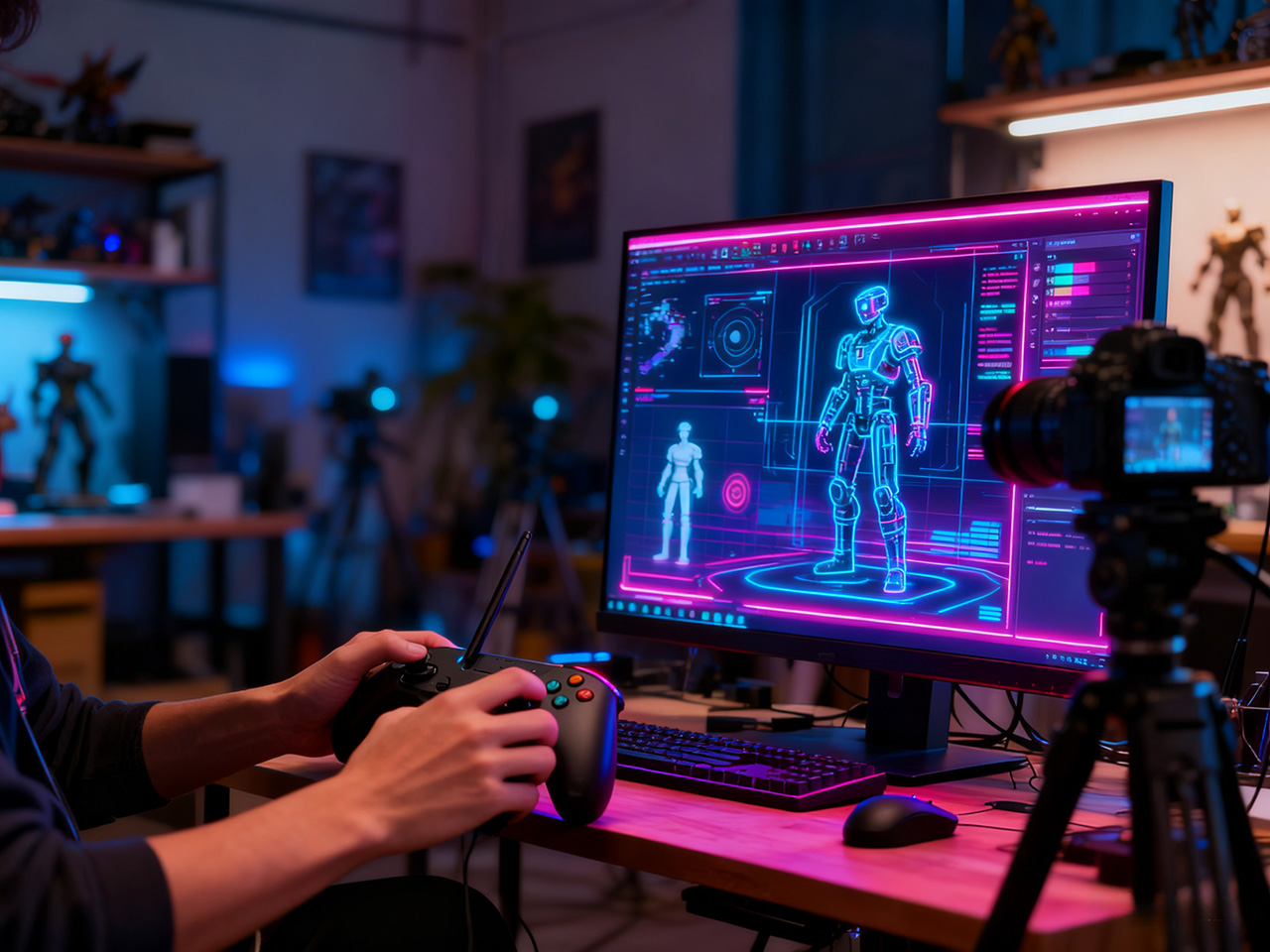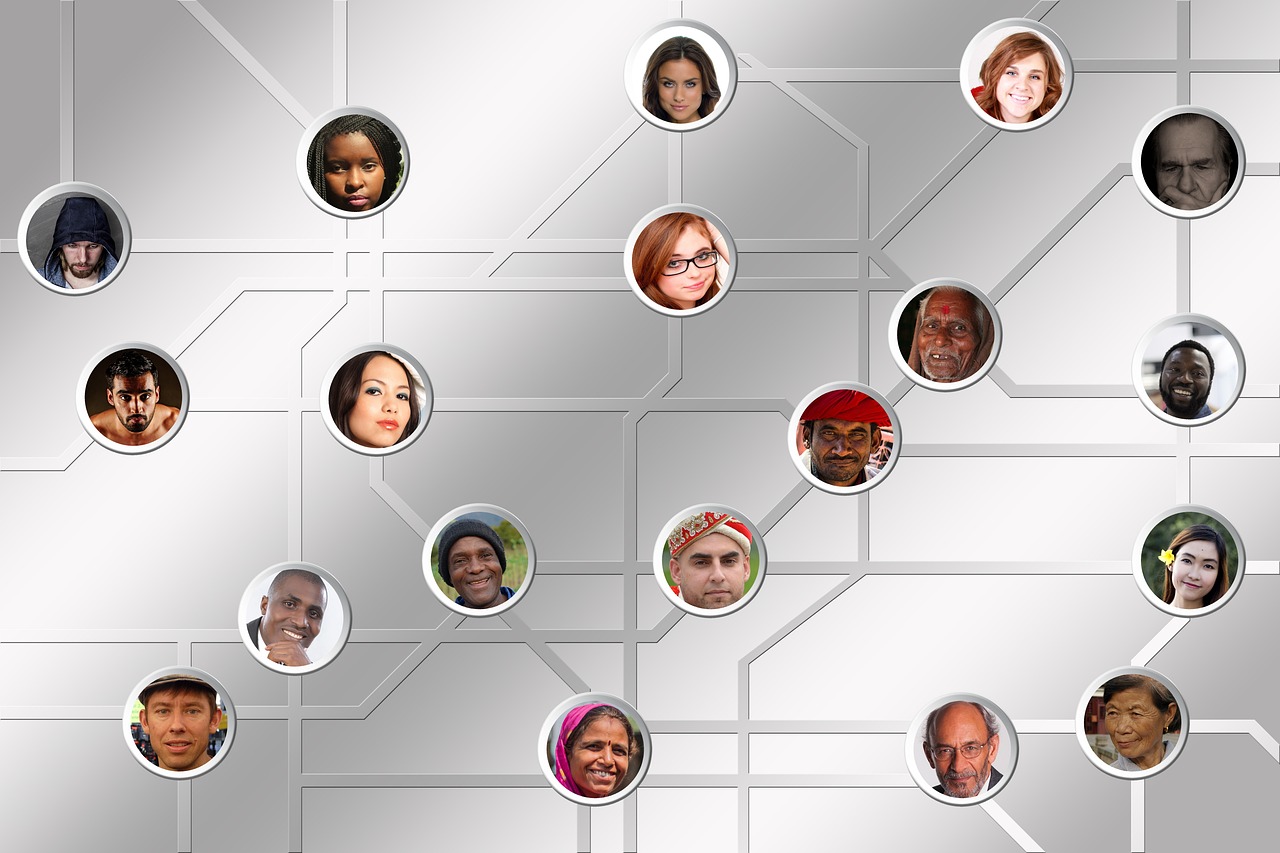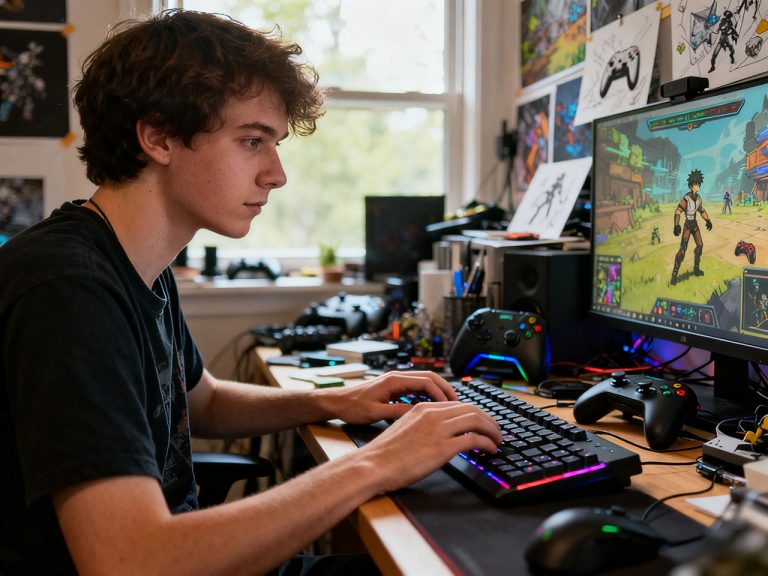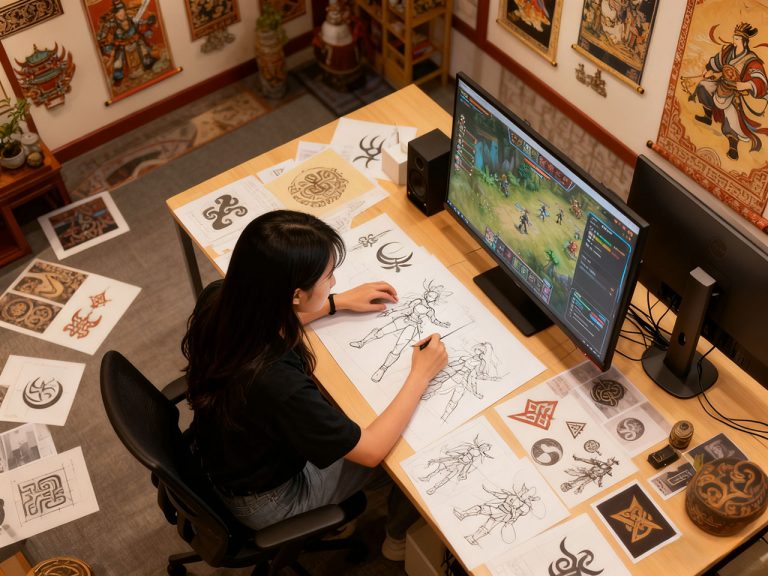
The Role of AI in Gaming: Current Uses and Future Possibilities
In recent years, the gaming industry has experienced a seismic shift with the integration of artificial intelligence (AI). From enhancing player experiences to creating more dynamic game environments, AI has become a cornerstone of modern game development. As the technology evolves, its influence on gaming is expected to grow exponentially, opening up new horizons for both developers and players. This post will explore the current uses of AI in gaming and delve into the exciting future possibilities this technology holds.
AI in Gaming: An Overview
Artificial intelligence in gaming is not a new concept. Since the early days of video games, developers have sought ways to make games more challenging and engaging. Early examples of AI in gaming include simple algorithms that dictated enemy behavior in classic arcade games like Pac-Man and Space Invaders. However, AI has come a long way from those early implementations.
Today’s AI in gaming involves complex algorithms that enable non-player characters (NPCs) to display lifelike behaviors, adapt to player actions, and even learn from player interactions. This has been made possible by advances in machine learning, neural networks, and data analytics. As AI continues to evolve, its role in gaming is set to expand further, leading to more immersive and personalized gaming experiences.
Current Applications of AI in Gaming
Enhanced NPC Behavior

The most notable application of AI in gaming is the development of NPCs that exhibit realistic behaviors. Gone are the days of predictable enemy patterns. Modern AI algorithms allow NPCs to make decisions based on a variety of factors, creating more nuanced and challenging gameplay. For example, in the game The Last of Us Part II, NPCs use AI to coordinate attacks, seek cover, and respond to the player’s actions in real-time, making each encounter unique.
Procedural Content Generation
AI is also used to generate game content dynamically. This technique, known as procedural content generation (PCG), allows developers to create vast and diverse game worlds without manually designing every detail. Games like No Man’s Sky leverage AI-driven PCG to create billions of unique planets, each with its own ecosystems and landscapes. This not only enhances replayability but also reduces development time and costs.
Adaptive Difficulty Levels
AI can adjust the difficulty level of a game based on player performance. This ensures that players remain engaged, as the game becomes neither too easy nor too difficult. By analyzing player behavior, AI can modify enemy strength, frequency of power-ups, and other game variables to match the player’s skill level. This adaptive approach is evident in games like Left 4 Dead, where the AI director controls the pacing and challenge of the game, providing a tailor-made experience for each player.
Realistic Graphics and Animations
AI plays a crucial role in creating realistic graphics and animations. Machine learning algorithms are used to enhance textures, simulate realistic physics, and animate characters in lifelike ways. This is evident in games such as FIFA, where AI-driven animation techniques bring the players to life, capturing subtle movements and expressions that add depth to the gaming experience.
Future Possibilities of AI in Gaming
Personalized Gaming Experiences

One of the most exciting prospects of AI in gaming is the ability to create personalized experiences for players. By analyzing player data, AI can tailor storylines, character interactions, and game environments to suit individual preferences. Imagine a game that evolves based on your choices, interests, and playing style, providing a unique journey that is different for every player.
AI-Driven Storytelling
AI has the potential to revolutionize storytelling in games. By using natural language processing and understanding player input, AI can create dynamic narratives that respond to the player’s actions and decisions. This could lead to games with branching storylines and multiple endings, where players have a meaningful impact on the game’s outcome. Games like Detroit: Become Human have already begun exploring this territory, and the possibilities are endless.
Advanced Virtual Reality (VR) Experiences
The integration of AI in virtual reality (VR) gaming could lead to more immersive and interactive experiences. AI can enhance VR environments by creating realistic simulations of physics and behavior, allowing players to interact with the virtual world in more meaningful ways. Additionally, AI can personalize VR experiences by adjusting scenarios based on player reactions and preferences, creating a seamless and engaging experience.
Improved Game Development Processes
AI is poised to streamline game development processes, making it easier and faster to create high-quality games. By automating repetitive tasks like asset creation, testing, and bug fixing, AI allows developers to focus on creative aspects and innovation. This could lead to more diverse and polished games hitting the market, benefiting both developers and players alike.
Challenges and Considerations

Despite the promising potential of AI in gaming, there are challenges that developers must address. Ethical considerations arise when AI is used to manipulate player behavior or gather personal data. Ensuring privacy and data security will be paramount as AI continues to play a larger role in gaming.
Moreover, game developers must balance AI’s autonomy with player agency. While AI can create dynamic and unpredictable experiences, it’s essential that players still feel in control of their gaming journey. Striking this balance will be crucial to the success of AI-driven games.
Takeaways
The role of AI in gaming is rapidly evolving, offering exciting possibilities for the future of the industry. From enhancing NPC behavior to enabling personalized experiences, AI is set to transform the way we play and create games. As technology continues to advance, the gaming industry must navigate the challenges and opportunities that AI presents, ensuring that games remain engaging, ethical, and innovative.
As we look towards the future, one thing is certain: AI will play an integral role in shaping the next generation of gaming experiences, pushing the boundaries of what is possible and creating new worlds for players to explore and enjoy.
The Evolution of AI in Multiplayer Games
Multiplayer games have always been at the forefront of technological advancements in gaming, and AI is no exception. In recent years, AI has begun to play a crucial role in enhancing multiplayer experiences. By employing sophisticated algorithms, developers can create fairer matchmaking systems that group players of similar skill levels, ensuring competitive balance and more enjoyable matches.
Moreover, AI-driven bots are being used to fill in player gaps in multiplayer lobbies. These bots can mimic human behavior, providing a seamless and engaging experience even if the player count is low. Games like Apex Legends have utilized AI bots to maintain match integrity and improve overall player satisfaction.

The Role of AI in Esports
Esports has become a global phenomenon, and AI is playing an increasingly important role in its growth. AI-powered analytics tools help teams and players analyze gameplay data to refine strategies and improve performance. By identifying patterns and weaknesses, AI provides insights that can give players a competitive edge.
Furthermore, AI is being used to enhance the spectator experience. Advanced algorithms can highlight key moments, automatically generate replays, and provide real-time statistics, making it easier for audiences to follow the action. This level of engagement is crucial for maintaining viewer interest and expanding the esports fan base.
The Impact on Indie Developers
AI technology is also leveling the playing field for indie developers. In the past, creating a game with dynamic environments and intelligent NPCs required significant resources. However, with the advent of accessible AI tools and platforms, indie developers can now harness the power of AI to create compelling games on a smaller budget.
By utilizing AI-driven procedural generation and adaptive difficulty systems, indie developers can offer unique experiences that rival those of larger studios. This democratization of technology is fostering creativity and diversity in the gaming industry, allowing for a broader range of games to reach the market.
AI and Cloud Gaming

Cloud gaming is another area where AI is making significant strides. By leveraging cloud-based AI, developers can offload complex computations to remote servers, enabling games to run smoothly on devices with lower processing power. This opens up gaming to a wider audience, as players can enjoy high-quality experiences without the need for expensive hardware.
Additionally, cloud gaming platforms can use AI to optimize streaming quality, reduce latency, and predictively load game assets. This ensures that players receive a seamless and responsive gaming experience, regardless of their location or device.
AI in Game Testing and Quality Assurance
Game testing and quality assurance (QA) are critical components of the development process, and AI is revolutionizing how these tasks are performed. Automated AI testing tools can simulate thousands of gameplay scenarios to identify bugs and performance issues more efficiently than human testers.
These AI-driven systems can also predict potential pain points in the player experience, allowing developers to address issues before a game is released. This not only speeds up the development cycle but also results in more polished and stable games at launch.
Conclusion: Embracing the AI Revolution in Gaming
The integration of AI in gaming is not just a trend but a fundamental shift that is reshaping the industry. As AI continues to advance, its role in gaming will only grow, leading to richer, more immersive experiences for players worldwide. Developers, whether in large studios or indie environments, have the opportunity to harness this technology to push the boundaries of innovation and creativity.
While challenges remain, such as ethical considerations and maintaining player agency, the potential benefits of AI in gaming are immense. By embracing AI, the gaming industry can continue to evolve, offering experiences that captivate and inspire players for generations to come.
As we stand on the brink of this exciting new era, it’s clear that AI will be a driving force in the future of gaming, shaping the way we play, create, and interact with games in ways we can only begin to imagine.






